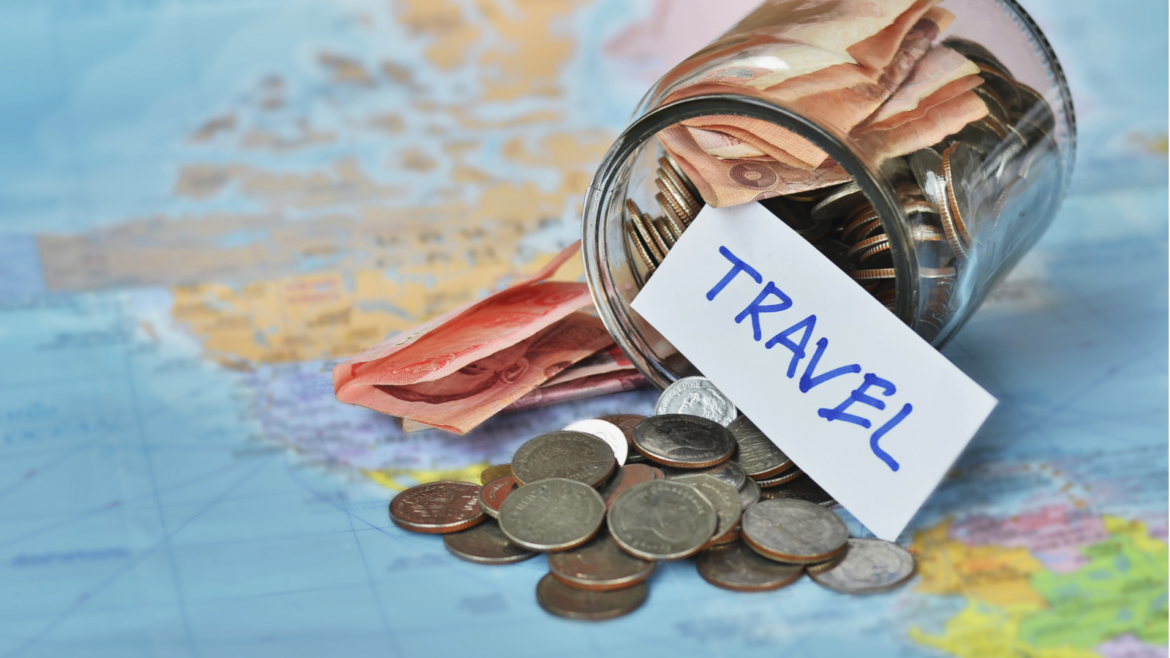Home » Road Trip Budget Planning
Travel Budget Planning: Unlocking the Secrets to Financial Success
Ready for a budget-friendly adventure? Embarking on a road trip is an exhilarating adventure, but without proper financial planning, it can quickly turn into a financial stressor. Hit the road with confidence, armed with a personalized budget that ensures your journey is as financially savvy as it is unforgettable.
In this comprehensive guide, we’ll explore the art of creating categories for your road trip budget that not only keep you on track but also enhance your overall travel experience. Let’s make those road trip dreams a reality!
Mastering the Road: A Step-by-Step Guide to Creating Categories for Your Ultimate Road Trip Budget
One key to a successful road trip budget is organizing your expenses into well-defined categories.
First, when planning and creating a road trip budget it is important to start with the big categories you can think of that may incur costs on your road trip. Some of the most common categories, but not limited to, are: Transportation, Gas/Millage, Memberships/Travel Clubs, Lodging/Housing, Meals, and Travel Insurance.
Budget-Friendly Vehicle Essentials: Navigating Fuel, Maintenance, and More
Your vehicle travel category includes fuel costs, maintenance, and any unexpected repairs. Learn how to budget for regular maintenance to prevent unexpected breakdowns. Next, allocate a portion of your budget for regular vehicle check-ups to prevent breakdowns on the road.
Vehicle Rentals
Car rentals are the most popular choices of travelers on common road trips. The rental cost per day can range from $10-$80 depending on the size vehicle you are looking to rent.
Long term trips or remote destination road trips may involve renting an RV. Accordingly, RV Rentals can range from $50/night for towable campers and trailers, to $250/night for large Class A motorhomes.
Be aware when renting an RV as a beginner, there many possible additional fees, taxes, and charges to consider. Coming up, for a more detailed review of the RV rental experience (especially if you are an RV rookie like myself!), be sure to review my post on everything you need to know about renting an RV!
| Rental Vehicle Type | Compact | Standard | Large |
|---|---|---|---|
| Car | $10-12/day | $20-25/day | $50-$80/day |
| RV | $70-115/night | $90-$180/night | $150-$250/night |
Planning for Gas & Fuel Expense
Starting the budget planning process with mapping out your route because it gives a window into the estimated travel time, miles travelled, and how much you will need to budget for gas and miles on the RV. Check out the AAA Website for today’s gas prices by state.
| Rental Vehicle Type | Average miles per gallon | Average millage charge |
|---|---|---|
| Car | 25 miles per gallon | unlimited miles |
| RV | 6-12 miles per gallon | $0.25 – $0.30 per mile |
Certainly, you will discover a wealth of tips for managing your road trip’s fuel costs effectively. First, start by estimating fuel expenses according to your vehicle type and planned route, ensuring a strategic approach to budgeting. Then, leverage the convenience of apps or online tools that provide insights into your vehicle’s fuel efficiency and offer accurate estimations tailored to your journey. Lastly, uncover additional strategies for enhancing your vehicle’s fuel efficiency on the road, ensuring not only cost savings but also a more environmentally conscious travel experience.
Travel Insurance
Some rental companies provide optional insurance you can add when you make the reservation. As a result, it is always important to understand how your personal insurance will be used and where you will need coverage.
Some of the popular RV rental sites require travel insurance through their site and it can be pricey. This is in the fine print, be sure to inspect closely before making your reservation and ask a lot of questions.
Memberships & Loyalty Programs
Certainly there are many great services out there to aid in road side assistance, mail forwarding, lodging discounts, traveler community groups, etc. We go into this in greater detail in this post on best loyalty programs. Roadside assistance memberships cost from $50-150 per year. Membership fees for discount and travel clubs can range from $50-$150 per year.
| Service Type | Membership Fee |
|---|---|
| Roadside Assistance | $50-$100/annually |
| Travel Clubs | $100-$500/annually |
| RV/Camping Clubs | $50-$150/annually |
Accommodation Hacks: Maximizing Comfort without Breaking the Bank
Clearly, embarking on a budget-friendly journey doesn’t mean compromising on comfort. In this guide, we’ll unveil the art of accommodation hacks, ensuring you enjoy maximum comfort without breaking the bank during your travels.
Early Booking Discounts: Securing Savings in Advance
- Plan your accommodations in advance to take advantage of early booking discounts.
- Explore online platforms and loyalty programs that offer exclusive deals for proactive travelers.
Mix It Up: Embracing Diverse Lodging Options
- Diversify your stay by exploring a mix of accommodations, including budget-friendly hotels, cozy Airbnb rentals, and scenic campsites.
- Tailor your choices based on location, duration, and the unique experiences each lodging option offers.
Loyalty Programs: Unlocking Exclusive Rewards
- Enroll in hotel loyalty programs to enjoy perks like discounted rates, room upgrades, and even free nights.
- Maximize your benefits by sticking to a particular hotel chain throughout your journey.
Off-Peak Travel: Capitalizing on Seasonal Discounts
- Plan your travels during off-peak seasons to capitalize on significant discounts for accommodations.
- Enjoy quieter surroundings and better rates while still relishing the full experience of your chosen destination.
Local Gems: Tapping into Unique, Budget-Friendly Finds
- Seek out locally-owned guesthouses, inns, or boutique hotels for a personalized and often more affordable stay.
- Embrace the charm of smaller establishments that offer a unique touch to your travel experience.
Last-Minute Deals: Seizing Spontaneous Savings
- Embrace spontaneity by keeping an eye on last-minute accommodation deals.
- Leverage apps and websites that specialize in offering discounted rates for unsold rooms on short notice.
Negotiation Skills: Securing Better Rates
- Factor in potential additional costs like parking fees or resort charges.
- Develop your negotiation skills when dealing directly with accommodations.
- Inquire about potential upgrades, extended stays, or additional perks to maximize your value for money.
Home Comforts: Utilizing Vacation Rentals for Long Stays
- For longer stays, consider vacation rentals equipped with kitchen facilities for added convenience.
- Enjoy the comforts of home while benefiting from potential cost savings on dining out.
RV Camping
Lodging options, in particularly RV camp grounds, can range anywhere from completely free to +$200/night.
| Lodging Type | Night Rates |
|---|---|
| Dry Docking/Boondocking | FREE up to $25/night |
| Partial Hookup | $30-$50/night |
| Full Service | $50-$100/night |
| AirBnB | $50-$150/night |
| Hotel | $90-$200/night |
Savoring the Flavor: Crafting a Food Budget That Nourishes Your Body and Wallet
Here are some tips on managing your budget on food and meals on the road.
- Break down your food budget into categories, including groceries, dining out, and snacks.
- Explore the art of meal planning and budget-friendly grocery shopping for the road.
- Discover how to balance culinary indulgences with smart spending on local cuisines.
- Break down your food budget into categories such as groceries, restaurant meals, and snacks.
- Consider packing a cooler with essentials for cost-effective meals on the go.
- Allow for occasional indulgences at local eateries to savor the unique flavors of each destination.
Meal Planning
Meal Planning can go a long way when traveling. Planning ahead helps control costs and unnecessary stops to the store. Check out my road trip meal plan for less than $25/day!
| Meal | Cost per person |
|---|---|
| Breakfast | $5-$15/day |
| Snacks | $3-$10/day |
| Lunch | $8-$20/day |
| Dinner | $9-$30/day |
| Drinks | $0-$10/day |
Entertainment on a Budget: Making the Most of Every Mile
- Pinpoint budget-friendly attractions. Balance splurges with low-cost or free activities along your route.
- Identify budget-friendly attractions and activities along your route.
- Learn how to maximize your entertainment budget with free or low-cost experiences.
- Discover strategies for prioritizing activities based on your interests and budget constraints.
- Identify attractions and activities along your route.
- Allocate funds for entrance fees, guided tours, or any special experiences.
- Research free or low-cost activities in each location to balance your entertainment budget.
Emergency Fund Essentials: Ensuring Financial Security on the Road
- Prioritize a flexible emergency fund. Be ready for unexpected costs like repairs or medical needs.
- Highlight the importance of having a dedicated emergency fund for unforeseen circumstances.
- Explore common road trip emergencies and how to financially prepare for them.
- Provide tips for maintaining a flexible emergency fund without compromising your budget.
- Dedicate a portion of your budget for unforeseen circumstances.
- This category can cover unexpected expenses like medical emergencies, vehicle breakdowns, or changes in travel plans.
- Create a catch-all category for expenses that don’t fit neatly into other categories.
- Examples include souvenirs, toiletries, or any spontaneous purchases.
- Keep this category flexible to accommodate unexpected opportunities.
Navigating Communication and Navigation Costs: Staying Connected without Breaking the Bank
- Discuss strategies for managing mobile data and communication expenses on the road.
- Explore budget-friendly navigation options, including apps and GPS tools.
- Provide insights into planning for tolls, parking fees, and other navigational costs.
- Include costs for mobile data plans, maps, or GPS rental fees.
- Ensure your phone plan covers nationwide travel or consider purchasing temporary local SIM cards.
- Plan for potential tolls and parking fees.
Real-Time Budget Management: Tools and Techniques for Success
- Introduce the best budgeting tools and apps for real-time expense tracking.
- Plan wisely with tools like TravelSpend. Estimate costs based on route and stops for a realistic budget.
- Use apps like PocketGuard for on-the-go tracking. Adjust your budget based on evolving needs.
- Share tips for adjusting your budget on the go based on evolving circumstances.
- Highlight the importance of regularly reviewing and analyzing your spending patterns.
- Utilize budgeting apps or spreadsheets to monitor expenses in real-time.
- Adjust your allocations as needed during the trip to stay within your overall budget.
- Regularly review your spending patterns to make informed decisions.
- Create a catch-all category for expenses that don’t fit neatly into other categories.
- Examples include souvenirs, toiletries, or any spontaneous purchases.
- Keep this category flexible to accommodate unexpected opportunities.
Road Trip Budget Planning Tools
In summary, creating well-defined categories for your road trip budget is a crucial step in ensuring financial success and stress-free travel. By allocating funds strategically, you can focus on the journey itself, knowing that you’ve accounted for all potential expenses. Creating and managing a road trip budget is a skill that can transform your travel experience. Finally, by following these comprehensive strategies, you’ll not only stay on budget but also enjoy the journey to the fullest. Hit the road with confidence, and may your adventures be as budget-friendly as they are unforgettable!

